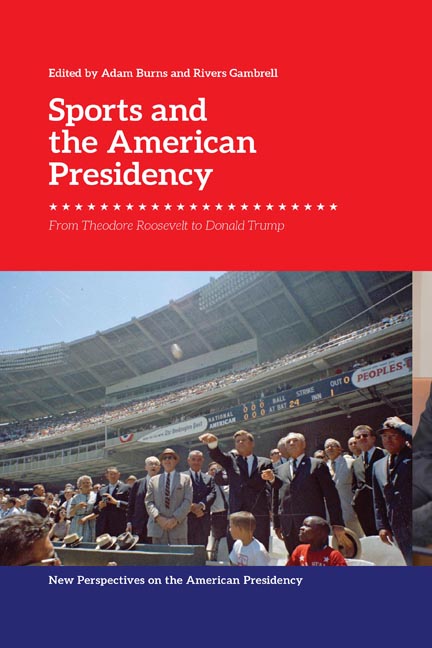8 - The Sport of Presidents? Horse Racing, Politics, and Perception
Published online by Cambridge University Press: 20 October 2023
Summary
The Kentucky Derby, which has run continuously since 1875, is the first and most famous leg of the American Triple Crown in horse racing. Nine U.S. presidents have attended the Derby, though only Richard Nixon did so while in office. This indicates both the abiding popularity of the race, but also that it was not a matter of political urgency or expediency for presidents to attend. Indeed, when Kentucky Governor Earle Clements invited Harry Truman to the race in 1949, the president took a rain check. Although Truman recalled enjoying the race in his youth, he did not see it as something he had time for while governing.2 While well attended across the centuries, the sport has never been popular with all of the people all of the time, and as this chapter goes on to explore, it is hard to gauge how much political capital a president might gain from association with the sport.
Though not constant, horse racing does have a longstanding connection with the presidency that can be traced all the way back to George Washington (1789–97). Washington was a meticulous gambler who regularly attended race meetings, and he was the first of many commanders-in-chief renowned for their love of the turf. In the years that followed, Andrew Jackson (1829–37) retained a keen interest in racing as a presidential racehorse owner, while Gerald Ford (1974–7) went to the Derby more than a dozen times, though not while occupying the Oval Office.
Racing was valuable for Washington in that it afforded space for both pleasure and networking, both political and social. The three presidents discussed here offer variations on that theme. Radio enabled Franklin Delano Roosevelt to benefit from the perception of an unparalleled solidarity with a racehorse in 1938; Richard Nixon went to the 1969 Kentucky Derby to meet with Southern governors and look like a man of the people; and Twitter enabled Donald Trump to use the 2019 Kentucky Derby as a way of reaffirming the anger of his base. The three presidents’ interactions with racing echo each other and resonate with their own political styles. Roosevelt’s engagement with a national sporting event was part of a larger effort to broadly support events that could raise people’s spirits in the Great Depression.
- Type
- Chapter
- Information
- Sports and the American PresidencyFrom Theodore Roosevelt to Donald Trump, pp. 165 - 187Publisher: Edinburgh University PressPrint publication year: 2022



